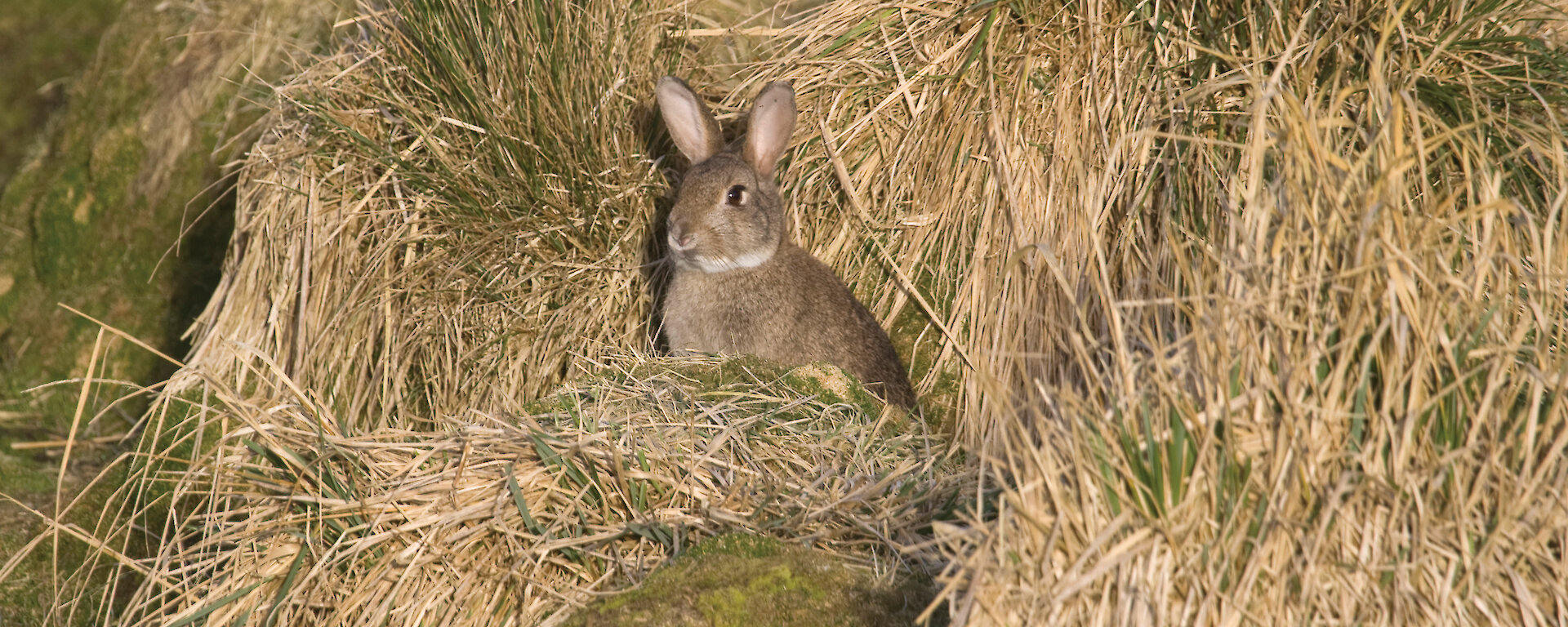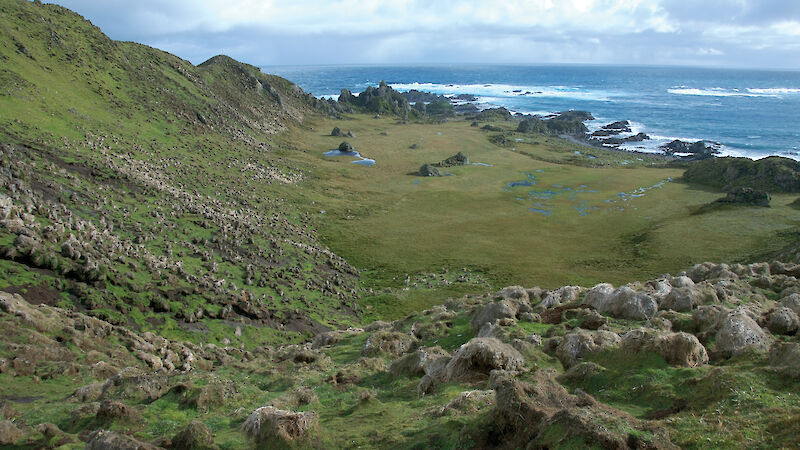Among the speakers at The Third International Forum on the sub-Antarctic are Australian Antarctic Division terrestrial ecologist Dr Dana Bergstrom and modeller Dr Ben Raymond. The pair has recently published research examining the range of possible outcomes from the current Macquarie Island Pest Eradication Project.
The project aims to eradicate rabbits, rats and mice from the island and Drs Bergstrom and Raymond’s research supports the anticipated positive outcomes from the project, including recovery of tall tussock vegetation and burrow- and surface-nesting birds. However the research also highlights some of the risks of the project, including the failure to eradicate mice and an increase in the populations of non-native redpolls and starlings, which mostly likely flew to the island from New Zealand and Australia in the early 1900s.
Dr Raymond will discuss this research and alien species management more broadly, while Dr Bergstrom will speak on the subject of the sub-Antarctic as a unique source of knowledge.
Eminent Antarctic and sub-Antarctic scientist and advisor to the Antarctic Treaty System, Professor Steven Chown, from Stellenbosch University in South Africa, will also speak at the forum.
Professor Chown is an authority on invasive species and the effect of climate change and human interactions on Antarctica and the sub-Antarctic. His research has shown that the increasing number of human visitors and temperature account for most of the variety of non-native species colonising the sub-Antarctic islands. He has also demonstrated how spatially explicit information on native and non-native species can be used to prioritise conservation decisions, such as World Heritage Status.
Other speakers at the forum will elaborate on the subject of the sub-Antarctic as a climate change sentinel, a source of human enrichment, and as an economic and environmental asset. The impact of and responses to extreme events will also be discussed.



